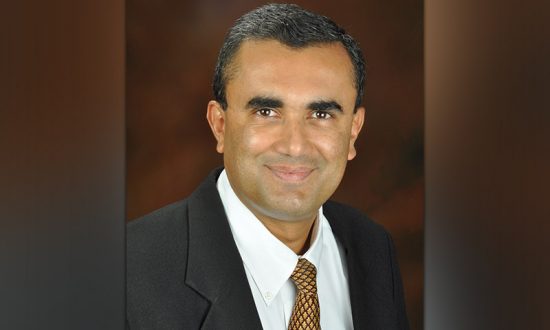Dr. Arjun Kalyanpur is CEO and founder of Teleradiology Solutions, a global healthcare Company headquartered in Bangalore, that reports radiology scans for over 150 Hospitals in the US, Singapore, India, Europe and Africa. Dr. Kalyanpur was trained at AIIMS, New Delhi, Cornell University Medical Center and Yale University in the US. He is an active contributor to the scientific literature, has edited a radiology textbook, serves as a reviewer for several radiology journals and is on the editorial board of the Indian Journal of Radiology.
The healthcare sector has been at the eye of the storm over the past two years of the COVID-19 pandemic. Health-tech, and in particular telemedicine have blossomed in their scope of delivery. This has primarily occurred due to the need for remote care and monitoring prompted by the threefold COVID containment/prevention approach of isolation, quarantine, and social distancing. Changes in public attitude with a dramatically increased acceptance of telemedicine/telehealth on the part of government, the public and the physician community are a direct consequence of the pandemic. The growth in telehealth and health-tech extends beyond COVID care to every medical specialty and subspecialty.
In this regard, the current budget has great impact on this sector in three respects
- Overall increase in Capex investment with Digital Focus – hard infrastructure as well as soft. The overall budgetary vision of increasing Capex investment to stimulate economic growth will inevitably percolate and yield benefits to the healthcare industry especially given the increased focus on digitization. The focus on increasing rural access to optical fibre connectivity will enhance the penetration of tele-healthcare delivery to India’s villages, where it is most needed.
- A specific focus on Digital Health – Empowerment of NDHM with increased budgetary allocation. The Government of India has done a truly remarkable job of conceptualizing, envisioning and strategizing its sweeping vision of the NDHM through its National Digital Health Blueprint. Beginning with the building blocks of Digital integration of health records, Health Data Exchange and Unified Health Interface this has great potential to transform Indian healthcare. Using the recent learnings from the pandemic, this budget, by allocating substantially increased investment in NDHM provides a timely opportunity for the rollout of these sweeping schemes that can transform healthcare delivery in India though health-tech initiatives, and can in parallel catapult the Indian health-tech industry to greater heights.
- Focus on Tele-mental Health – The focus on developing a national mental health services network, in part related to the current pandemic related stresses, is greatly welcome given the proliferation of mental health issues across the country. By identifying and committing to technology as the solution for such issues, the government has given an overall boost to telemedicine that can and will carry over to other areas of telehealth.
Our group of organizations has been providing telehealth services and solutions since 2002. Over the last 20 years we have come to understand the key role that Telehealth and health-tech plays in advancing healthcare access to communities in need. Teleradiology reporting for hospitals in India and the world has addressed the regional shortages of radiologists and provided access to quality diagnostics to remote communities, such as in the rural Northeast of India. Through a chain of RXDX clinics and a phygital model, telehealth services to the Bangalore community have been sustained throughout the pandemic, allowing for home care and monitoring of COVID-19 patients as well as clinic based testing and vaccination services. Through a mental health portal, online counselling services have been provided to those in need, both before and during the pandemic. And Technology solutions that support these services have been developed in-house, with a Make In India focus. Our experience over the past two decades has shown us that technology is ultimately the enabler for increasing the reach and access of quality healthcare to every corner of our country.
Through the success of the ambitious COWIN vaccination programme, India has proven to the world that we have the vision to couple technology and healthcare delivery and the execution capability to implement a massive nationwide programme speedily and efficiently, to great effect.
The current budget provides us an opportunity to translate this success story to become the narrative for health-tech and telehealth as a powerful solution for India’s healthcare problems.


